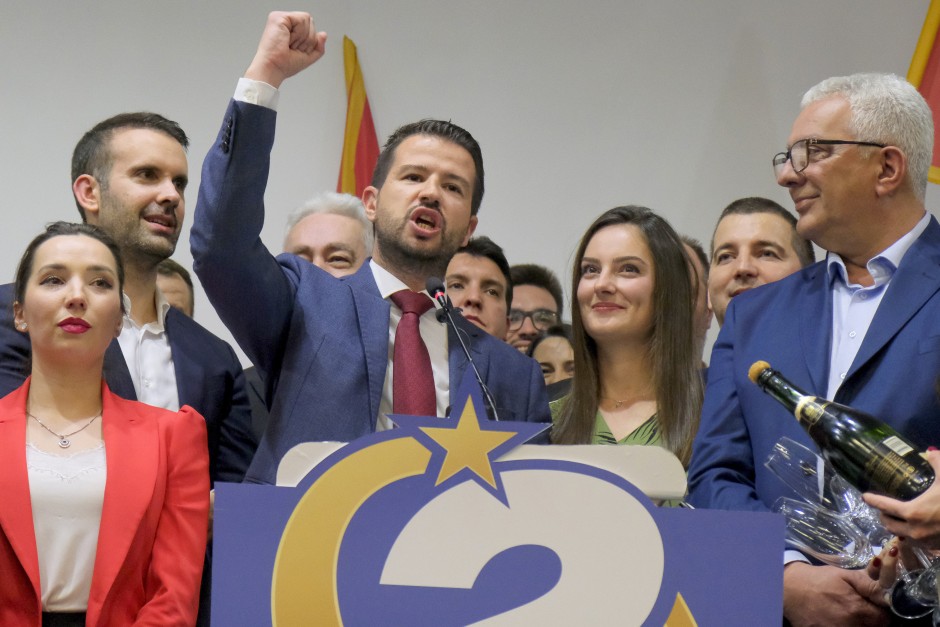
Jakov Milatovic (centre), whose PES party is currently leading the general elections in Montenegro, after winning the presidential elections.
Image: AP
After the long-serving President Djukanovic was voted out of office in April, there are also signs of a power shift in the Montenegrin parliament. A victory for the PES would mean stronger ties to Europe.
BAccording to initial projections, President Jakov Milatovic’s party is in the lead in the early parliamentary elections in Montenegro. The Europe Now Movement (PES) accounted for 25.5 percent of the votes, as the Cemi research institute announced on Sunday after counting a good half of all votes in 400 representative polling stations. The party wants to strengthen the small Adriatic country’s ties to both the EU and neighboring Serbia. The pro-European Democratic Socialist Party (DPS) came in second with 23.4 percent. Before the election, polls had predicted that the pro-Russian Democratic Front (DF) party would come third.
The parliamentary election follows April’s presidential election, which saw former DPS leader Milo Djukanovic voted out after decades at the helm of the country that was once part of the former Yugoslavia. He led Montenegro to independence from the successor state of Yugoslavia, Serbia and Montenegro, in 2006 and to NATO in 2017. He rejects allegations that he and the party are corrupt and have links to organized crime. The vote in the presidential election for his challenger Milatovic, who has taken up the cause of the fight against corruption and promised voters a higher standard of living, was also considered a landmark decision for the parliamentary elections.
The hope is linked to the vote that the political crisis that has been going on in Montenegro for a long time will end. There were repeated votes of no confidence and arguments between the then President Djukanovic and MPs. In mid-March, Djukanovic dissolved parliament and called early parliamentary elections. Montenegro is largely dependent on tourism revenue. The country with around 620,000 inhabitants is one of the six Western Balkan countries that are striving to join the EU. The population is divided: while members of a population group identify as Montenegrins. look, others see themselves as Serbs.









